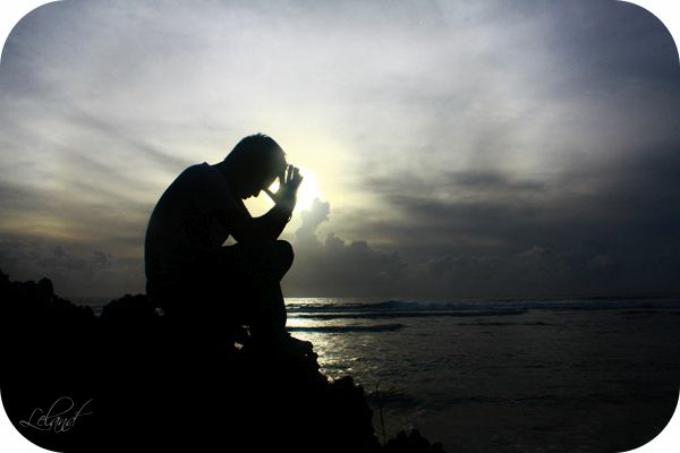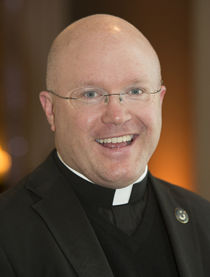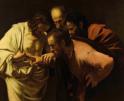
Faith
John Paul II focused on six different elements, but emphasized this training in holiness that a plan of life cultivates requires "a Christian life distinguished above all in the art of prayer."

Landry
We've been focusing for the last several weeks on various elements of a Catholic plan of life, the spiritual game plan to help us to achieve the purpose of human existence, which is a communion with God and others meant to begin in this world and last forever.
In 2001, St. John Paul II said that everything that the Church does is meant to help train people in the spiritual practices that will help us cooperate in God's will to make us saints. He focused on six different elements, but emphasized this training in holiness that a plan of life cultivates requires "a Christian life distinguished above all in the art of prayer."
There's a lot contained in that phrase.
First, it indicates that prayer is the most important part of a plan of life, because prayer -- which is an intimate, transformational dialogue with God, not so much of words or even ideas but of persons-- needs to be at the foundation of every other part of that spiritual game plan, since every part of the plan of life is meant to be an encounter with God.
Second, St. John Paul indicates that Christian prayer is an art, not a technique. Prayer is not like engineering or chemistry, but more like playing or composing music. Inspiration is involved, namely the literal "in-breathing" that God the Holy Spirit gives us, which is the basis of prayer, for we do not know to pray as we ought (Rom 8:26).
Third, a truly Christian life must be characterized "above all" by this inspired art. In other words, to the extent that we're living a genuinely Christian life, our life must be marked especially by prayer. To be practical, at our funeral, the mourners should be able easily to say that the most distinctive thing about us was that we were a person of prayer! "Learning this Trinitarian shape of Christian prayer and living it fully," St. John Paul said, "is the secret of a truly vital Christianity."
Our Christian life is worth, basically, what our prayer is worth.
That's why daily prayer is so essential to a plan of life. "It would be wrong," St. John Paul underlined, "to think that ordinary Christians can be content with a shallow prayer that is unable to fill their whole life. Especially in the face of the many trials to which today's world subjects faith, they would be not only mediocre Christians but 'Christians at risk.' They would run the insidious risk of seeing their faith progressively undermined."
Prayer is meant to fill our whole life. It's not meant to be a three-minute exercise before we go to bed or even a three-hour exercise that remains in a chapel. It's meant to be the soul of our Christian existence, something that catalyzes a continual encounter with God by helping us to live conscious of God's presence and in union with his will throughout the whole of the day.
When saints and spiritual directors talk about prayer as part of the plan of life, they mean fundamentally what St. Teresa of Avila called "mental prayer," which involves the internal acts of our mind and heart involved in meditation and contemplation. It's a time of silence in which we dialogue with God, listening for his voice, ruminating on his words, seeking his face and allowing ourselves to be looked at him by love. St. Teresa describes mental prayer as "a close sharing between friends."
Mental prayer is distinguished from what the Church calls "vocal prayers," when we use words given to us by others -- by the Lord, by saints, by the beautiful prayers found in prayer books -- to converse with God. Vocal prayer is obviously good, but it can feature more our speaking to God than our listening interiorly to what God wants to say to us. Prayer is more than merely "saying our prayers," even if those prayers are the Lord's Prayer and the angelic salutation!
For most people, especially at the beginning, mental prayer is not a switch we can just flip on. It takes time to leave the daily noise of life behind to listen to God's gentle interior whispers.
Archbishop Fulton J. Sheen used to encourage a daily holy hour. St. Josemaria Escriva used to urge lay people to split it up into a half-hour in the morning and a half-hour in the evening, so that one would better keep the presence of God throughout the day. Those who struggle at the beginning are often urged to start with a solid block of fifteen minutes a day and build the spiritual stamina.
This may seem like a big commitment -- and it is -- but we also need to keep it in perspective. Most of us, if we had the privilege to have a 30 or 60 minute appointment each day with Pope Francis or a great saint to help us in the spiritual life, would wisely and enthusiastically jump at the chance. But mental prayer is an appointment with God himself, and if we wouldn't seize that opportunity, it's probably a sign that God is not really yet God in our life.
Second, most of us easily have the time. Nielsen tells us that the average American watches 34 hours of television a week, almost five hours a day. All most of us would need to do to find time to pray is prioritize contemplating God over watching television. As kids know, love is spelled T-I-M-E. Do we love God enough to make time for him?
I generally try to make a holy hour first thing in the morning -- before other thoughts intervene -- and to make a half-hour of prayer at night. I mark "Jesus" in my calendar and treat these appointments as the most important in my day, because they are. Others find they can pray better at other times when they are more alert and less distracted. The essential thing is not when we're praying but that we're praying.
Many ask how to do this mental prayer well. There are lots of great books to explain it. I generally recommend as an introduction Fr. Jacques Philippe's Time for God. But at the same time -- because prayer is an inspired art and not a technique -- I just encourage people to make the time and begin, asking the Lord to teach them how to pray, just as the first disciples requested (Lk 11:1).
St. Josemaria once gave great advice to young students: "You don't know how to pray? Put yourself in the presence of God, and as soon as you have said, 'Lord, I don't know how to pray!' you can be sure you've already begun."
- Father Roger J. Landry is a priest of the Diocese of Fall River, Massachusetts, who works for the Holy See’s Permanent Observer Mission to the United Nations.
Recent articles in the Faith & Family section
-
Scripture Reflection for April 21, 2024, Fourth Sunday of EasterJem Sullivan
-
The new Temple: How Easter changes religionDr. R. Jared Staudt
-
The wonder of Ordinary TimeLucia A. Silecchia
-
Is there still responsibility for past sins after confession?Jenna Marie Cooper
-
Wounds, not scarsJaymie Stuart Wolfe


















